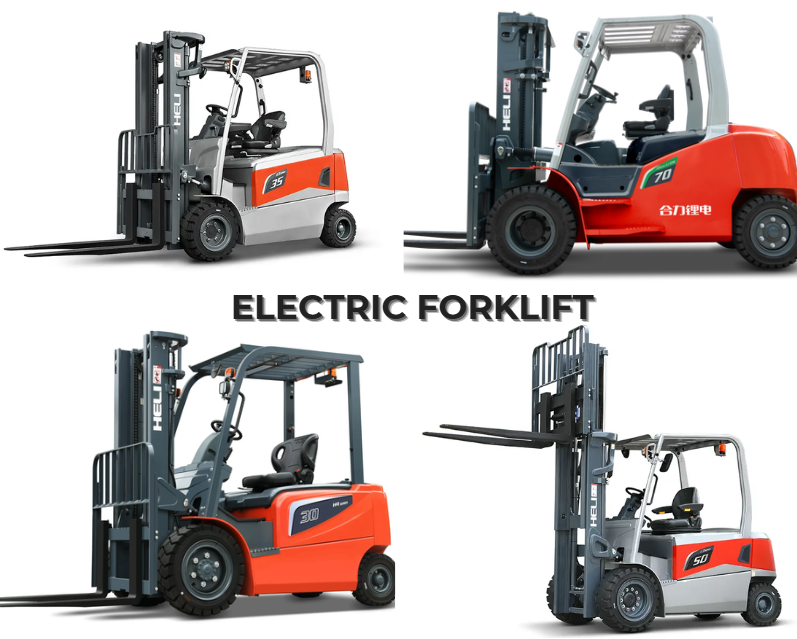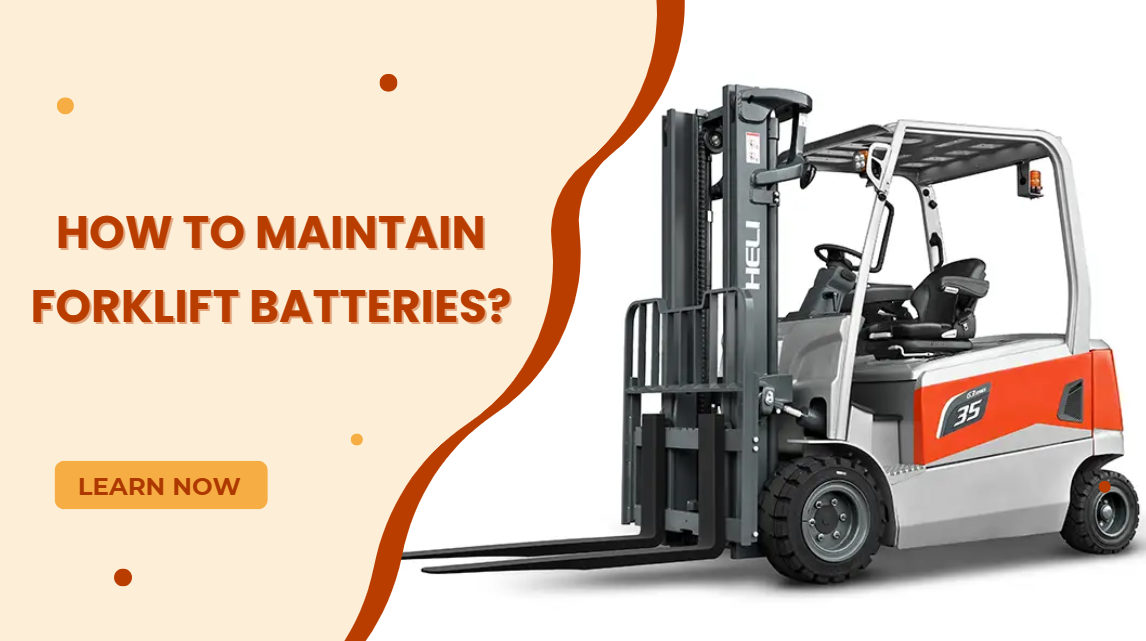How to Maintain Forklift Batteries for Peak Performance
Electric forklifts are becoming increasingly common in warehouses and industrial operations, powering more and more daily tasks with efficiency and low emissions.
If you operate one, you have probably felt the panic when an electric forklift battery dies right in the middle of a busy shift. Slow charging, sudden power loss, and batteries that wear out too fast can throw your schedule off, delay shipments, and cost a lot of money.
With proper forklift maintenance, you can avoid these headaches. In this guide, we will offer practical, experience-backed tips that make maintenance easy to follow.
Charging Best Practices
When should your forklift battery be recharged? How do you prevent it from losing power in the middle of a shift? What can you do to avoid overheating or shortening its lifespan? These are common questions we hear from forklift operators, and getting the answers right is a big part of effective forklift battery maintenance.
Here are some practical charging tips that will help you keep your batteries healthy, safe, and ready to go whenever you need them:
- Charge Before It Gets Too Low
For lead-acid batteries, try to recharge when the battery is about 20–30% discharged. Waiting until it is almost empty can damage cells and shorten lifespan. For lithium-ion batteries, regular charging after each shift keeps them ready and prevents sudden power loss.
- Follow Full Charge Cycles
For lead-acid batteries, avoid frequent short charges. Always let the battery reach full capacity before disconnecting. Stopping mid-cycle can damage cells and reduce overall lifespan. Lithium-ion batteries are more forgiving but still benefit from regular, complete charging after each shift.
- Prevent Overcharging
Overcharging creates heat, accelerates wear, and can damage battery cells. Using a smart charger or Battery Management System (BMS) helps manage voltage and current to prevent overheating and excessive gassing.
- Ensure Proper Ventilation
Always charge batteries in a well-ventilated area. This prevents hydrogen gas buildup, which is flammable, and helps dissipate heat. Display “no smoking” signs, avoid open flames or sparks, and have a phone nearby for emergencies.
- Use Compatible Chargers
Make sure the charger matches the battery type and capacity. Connect the positive clamp first, then the negative, and follow manufacturer recommendations. Labeling chargers and color-coding connectors reduces the risk of mistakes.
Watering and Cleaning (Lead-Acid Batteries)
Lead-acid forklift batteries need a bit more attention than lithium-ion ones. They rely on regular watering and cleaning to keep electrolyte levels right and prevent corrosion. If you skip these steps, your battery life can take a hit, performance drops, and safety issues can pop up. Here’s how to keep your batteries in top shape:
Watering:
- Check water levels after charging, weekly, or every 5–10 charge cycles.
- Add distilled or deionized water only when the battery has cooled.
- Keep water slightly above the plates but below the battery cap.
- Maintain a consistent watering routine and log it to track battery health.
- Low water levels can damage plates, reduce lifespan, and affect performance.
Cleaning:
- Inspect terminals, connectors, cables, and the case regularly for dirt or corrosion.
- Spot clean weekly, wipe edges and case monthly, and perform full cleaning 3–6 times a year.
- Use a neutralizing agent like a baking soda solution or warm water with battery cleaner.
- Ensure vent caps are sealed and dispose of wastewater according to guidelines.
Operator Tips for Safe Battery Use
Want your forklift batteries to last and stay safe? Daily handling matters. Lift, move, inspect, and store them properly to prevent damage, avoid accidents, and keep your forklifts running smoothly.
- Lift and transport carefully. Batteries are heavy, so use proper lifting techniques or equipment to avoid drops or damage that can reduce battery life.
- Store in a cool, dry place. Heat speeds up battery degradation, so keep batteries away from direct sunlight or hot areas.
- Perform routine visual inspections. Check terminals, cables, and battery casing regularly for corrosion, cracks, or leaks before each shift.
- Follow safety protocols. Always wear the right protective gear, disconnect batteries before handling, and stick to your facility’s safety procedures. Proper PPE and safe handling prevent accidents and keep batteries in good condition.
- Train operators. Make sure everyone handling batteries knows the right way to lift, inspect, and store them. A little training goes a long way in preventing accidents and extending battery life.
Common Battery Problems and Solutions
Even with proper maintenance, batteries can run into issues. Knowing what to look for and how to fix them helps keep your forklifts reliable.
Problem | Cause | Solution |
Sulfation (Lead-Acid) | Undercharging | Complete full charge cycles; perform equalization charging if recommended |
Overheating during charging | Overcharging or poor ventilation | Avoid overcharging; use a correct charger; ensure good ventilation |
Corrosion on terminals | Dirt or acid buildup | Clean terminals regularly with a baking soda solution or battery cleaner; check connections |
Shortened capacity (Lithium-Ion) | Extreme temperature exposure | Store and charge in a temperature-controlled environment; monitor usage in hot or cold conditions |
HELI Electric Forklifts with Reliable Battery Performance
Good battery maintenance is essential, but it can’t make up for a forklift that isn’t built to last. Choosing a high-quality electric forklift is just as important for smooth operation, reliable power, and long-term performance.
If you are looking for electric forklifts, HELI is a name you can trust. Whether you’re using lead-acid or lithium batteries, HELI forklifts are designed for reliable performance, long battery life, and smooth operation in busy warehouses and industrial sites.
Some key advantages of HELI electric forklifts:
- Consistent Power: Smooth, dependable performance throughout your shift, whether you’re moving heavy loads or handling frequent stops and starts.
- Durable Batteries: Lead-acid or lithium options built to last, with optimized designs that reduce downtime and maintenance needs.
- Operator-Friendly Design: Ergonomic controls and easy access to battery compartments make daily handling, charging, and maintenance safer and simpler.
- Proven Reliability: Years of experience in manufacturing and global deployment mean HELI forklifts can withstand demanding industrial environments.
With HELI, you get more than just a forklift—you get a reliable partner for your operations, backed by practical technology and strong battery performance.

Conclusion
Good forklift battery maintenance doesn’t have to be complicated. By following simple habits for charging, watering, cleaning, and daily handling, you can prevent downtime and keep your operations running smoothly.
Pair that with a high-quality forklift, and you’re set. HELI electric forklifts deliver durable batteries, reliable performance, and operator-friendly features so you can focus on getting the job done with confidence. Contact HELI today!

